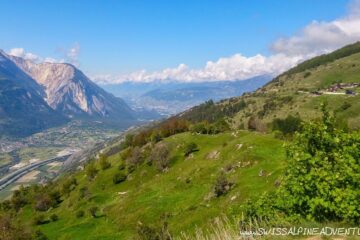These days there are services for everything. For those that want to get out on their bikes but perhaps don’t know where to go, or who’s friends don’t share their passion for bike sport there are companies who provide a service and will take you on a bike tour.
If a company offers this service and it’s how they make their main income you wouldn’t you expect that service to be quite professional? So why do we have companies in the market who take risks with their clients safety in the interest of money? Who offer tours that have not correctly been thought out in terms of routes and logistics? Who will knowingly break the law with their guests? And who’s guides would rather continue and have a chat rather than go to the assistance of a client who has fallen off their bike and is not getting up?
First off, I am the first person to acknowledge that mountain biking is a dangerous sport. Anyone taking part in a guided tour must be willing to accept the risk involved in participating in that tour, but as guides it is our responsibility to pre-plan the route, keep our group numbers controllable and offer assistance in any way to the people under our care. We can’t physically make sure each of our clients stays upright on their bikes the whole way through a tour, but we can plan as much as possible around the the tour to minimise the risks of what might happen, attend to the clients in the most professional way if (when) something does happen and to know the route well enough to be able to warn about potential dangers ahead.
With this in mind I find it quite upsetting when someone who I care a great deal about pays a substantial sum of money to go on a commercial bike tour and the following events occur:
- 11 clients are being looked after by one (what appears to be) inexperienced guide (the recomended ratio in this terrain is about 8 clients to 1 guide) There is a second guide present sometimes, but he leaves the group for critical parts of the day while going to pick up the bus or to research part of the ride for the next day.
- The guide has not ridden the route before and does not know where he is going.
- Someone has a crash and the guide thinks it’s more important to continue his conversation rather than go to the assistance of the person who is laying on the ground and not getting up.
- The company is incapable of researching if a lift required for their route is open when they are supposed to use it.
- The guide does not control the group on a busy road, allows group members to go through an unlit tunnel without any lights on their bikes and does not wait at the tunnel to ensure that everyone gets through safely. (The guide was unaware that the tunnel existed which would not be the case if they had pre-ridden the route or even looked at a proper map of the area!) Even when returning through the same tunnel the guide did not consider the safety aspects until confronted about it by a member of the group.
- The guide knowingly takes the group through a National Park area where biking is illegal, therefore encouraging his clients to break the law of the land they are in.
- In an evening briefing they declare a trail for the next day to be non-technical and with no exposure and the next morning before starting the trail they warn clients that the trail is technical and exposed.
- There is clear evidence that this route is being run commercially without anywhere near the level of research and/or preparation required to offer this as a professionally run tour.
- When the company owner was challenged about the level of safety, his answer was “if an accident happens, it happens”.
- When the company owner was challenged about leading a group on an illegal trail, his answer was “others are doing it”.
 |
| A sign and the law article under which biking is forbidden in a National Park area where a commercial company took a group. |
In a time where trails are being opened and closed at the will of local governments and where we have had three deaths on mountain bikes in the last 6 weeks in Switzerland it is essential that we all mountain bike responsibly. As guides it is our duty to pass on a responsible attitude to mountain biking to our clients. If we are not professional about this then we can never expect our clients to listen to what we say. A guide who casually flaunts the law encourages others to do so. To say that it is ok because others are doing it is no excuse. At what point does it become ok for it to break a law “because others are doing it”? Where do we draw the line? Is it ok to commit murder too “because others are doing it? As guides we need to lead by example. If everyone casually disregards good practice on bike tours we will end up in a situation where more and more trails will be closed to bikers in the future.
If you are someone who goes on guided mountain biking holidays demand that the standard of the guiding is professional. If you are a good take a long hard look at yourself and ask yourself how you can do your job better. If you are the owner of the company which ran the tour I have described above re-evaluate your business.
Before I get off my high horse I won’t say that I am the shining light of mountain bike guides. I am human, I do make mistakes and people have been injured on rides I have organised. I do however always aim to learn from my mistakes and honestly try to give the best of myself to those I take on a ride at all times. I use the motto prepare for the worst, but hope for the best. It appears at least one company just uses the motto hope for the best and let’s not bother with the preparation.




